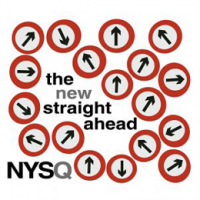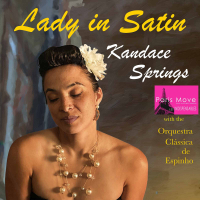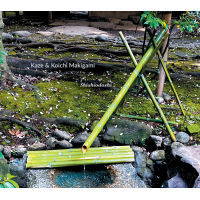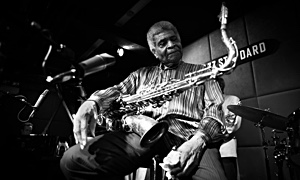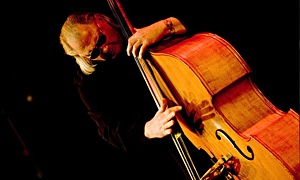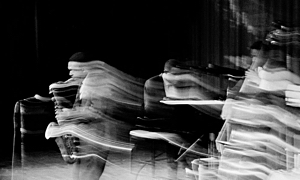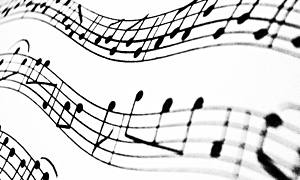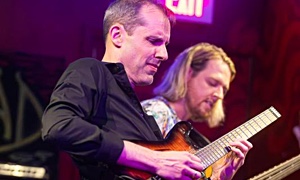Home » Jazz Articles » On and Off the Grid » Practice, Do You? Part 1-3
Practice, Do You? Part 1-3
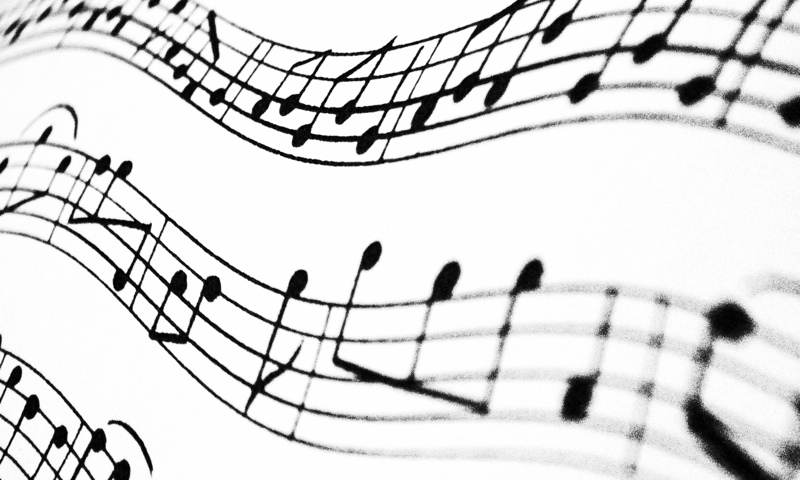
When I was fourteen I switched to Sal Salvador. Sal was pretty well known in the fifties and sixties and it was the right move for where I was as a guitarist. Sal gave me a slew of books, which included the Arbans Trumpet Method, Johnny Smith Aides to Technique and many more. My practice routine during the school year went up to five to six hours a day. I would practice early in the morning before school. Two hours after, break for homework, sports and dinner and resume practicing at about 8:30pm. During the summers I was practicing up to twelve hours a day. I wanted to be as good if not better than Johnny Smith or Wes Montgomery or any of the greats of that day. As I got older my points of reference became John Coltrane, Eric Dolphy, Thelonius Monk, Cecil Taylor, Albert Ayler and all the players that moved me.
Through all of this, not one teacher taught me how to improvise or explained advanced harmony and theory. I took this upon myself to learn and it was part of my practice routine along with learning tunes and chord melodies.
When I became a full time musician and worked six nights a week till 4 AM in the morning, I would practice five to six hours before going to work. In 1963 with the emergence of the Beatles, every kid wanted to play guitar. Before you know it I had 110 students. It took away from my practicing, but I managed to get a couple of hours in before my teaching began and I always played with the students.
I'm 71 now and I still practice some days more than others. Through the years there were times when I felt I needed to go to another level and I would put in eight hours per if I had the time. And it's still the same. If I feel I need to get to another level, I go back to practicing longer hours.
I also spend a lot of time focusing on music. What I mean by that is, I hear music all the time in my head. I mentally practice all the time and before I re-harmonize or arrange a standard, or compose, I think about it and hear it first, so when I'm ready, it just flows through me. The same goes for writing this article. I thought about it for a long time and now the words are flowing on to the paper.
While I was thinking about this article, I thought it would be a good idea to contact some of my friends and see if they felt the same as I did. I asked only two questions:
1. Do you still practice and how much?
2. What do you practice?
I contacted a lot of musicians never expecting such a response. If everyone had answered me, this would have been a book instead of an article. Some answers were short and some were extremely long and some were hilarious.
I was amazed by some of the answers and I think you will be too.
Some of the artists are famous and some you may not have heard of, but that really doesn't matter. What matters is the dedication. I am truly touched and very hopeful for the future of jazz by these responses.
I placed the answers and artists under instrumental category. Because I am a guitarist and know a lot of guitar players, I posted the guitarists' comments last.
Piano
Hal Galper
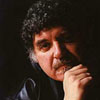 Who's got time to practice? Actually, for that very reason, I just resigned from Purchase Conservatory. Been taking up too much of my time for practicing, composing and booking the trio as well as having any kind of personal life. Keeping my Monday New School gig though.
Who's got time to practice? Actually, for that very reason, I just resigned from Purchase Conservatory. Been taking up too much of my time for practicing, composing and booking the trio as well as having any kind of personal life. Keeping my Monday New School gig though. This is my practicing methodology: I usually avoid it as much as possible. I get up and check my emails & respond. Make some calls, fix some shit around the house, go to the bank & post office, do the day's grocery shopping. Get back home, have a late lunch, take a nap, get up and watch MSNBC news while making dinner, watch my favorite TV shows that night, read a book while the ads are on, by that time it's around 11 or 12 pm and I sit there wondering what I can do next and all of sudden it occurs to me "PLAY THE PIANO!" I go to the piano and just start and what ever problem I stumble into I deal with and the next thing I know it's 2 am and I go to bed.
Michael Jefry Stevens
 I practice whenever I get a chance.Unfortunately that is normally not every day. Lately my practice time is taken up by:
I practice whenever I get a chance.Unfortunately that is normally not every day. Lately my practice time is taken up by: 1. Working on tango music (I am currently in the Asheville Tango Orchestra);
2. Working on my own compositions;
3. Studying different composers—classical, Brazilian, Jazz, Broadway composers.
Today I worked on a bunch of lesser-known Antonio Carlos Jobim tunes. Last month I was working on some old blues and ragtime composers. Always like to study Bach (preludes and fugues and chorales). I have been working on a Hermeto tune lately.
4. Taking an on line course out of England in arranging for orchestra.I also have been studying how to arrange for accordion and bandoneon.
5. I like to sight-read music, both classical and jazz. Wish I had more time to practice but most of my time is spent working or trying to get work. Lots of time spent at the computer and teaching.
Mike Longo
I practice an hour or two every day. Hanon and Czerny exercises when needed. Repertoire, soloing over rhythm changes and blues changes with a half step modulation on each chorus, so much on an old tune, so much on a new tune, stuff to get ready for an upcoming performance, so much time on investigative work, so much time analyzing stuff I have heard on recordings that I like, what ever I feel is necessary for my own growth and accomplishment.
Mike LeDonne
 The short answer is yes I still practice. How much varies. I have a disabled child so my time is not like it used to be. I'd say I always get in at least an hour on days when I'm working and up to 3 to 4 (and even more sometimes) on days when my daughter is in school and I'm free at night as well. But I also write music in that time so it's not all practice with my fingers. I see writing as practicing also because I might come up with something that keeps me thinking and working on different approaches to it the rest of the day and into the night. Writing is very important to me and also something I enjoy because I love to work things out to their logical conclusion like a puzzle.
The short answer is yes I still practice. How much varies. I have a disabled child so my time is not like it used to be. I'd say I always get in at least an hour on days when I'm working and up to 3 to 4 (and even more sometimes) on days when my daughter is in school and I'm free at night as well. But I also write music in that time so it's not all practice with my fingers. I see writing as practicing also because I might come up with something that keeps me thinking and working on different approaches to it the rest of the day and into the night. Writing is very important to me and also something I enjoy because I love to work things out to their logical conclusion like a puzzle. I prefer to practice right after I get up in the morning because I need the fresh energy to practice right. I warm up for at least a half hour with technical exercises. I have some of my own finger strengthening exercises and classical etudes that I've been playing for years. I had a teacher that taught me about how practicing very slowly and focusing on every tiny movement my fingers hands and arms are making is the path to good technique. Also to producing the best sound with the least effort. When practicing like that an hour can go by like it was 5 minutes.
Then it's on to shedding ideas. I do this by simply playing over tunes. I find that it takes me at least an hour of doing this before anything new starts popping into my head. I might play one tune for the whole time and just keep thinking of different ways to approach it harmonically and tempo and feel wise. I'll also play it in different keys. I'm also still very much into listening to music and if I hear something I like I'll try to figure out what it was and take that through the keys as well.
Connie Crothers
 I never practice. I haven't practiced for many decades. Everything I do at the piano is music. Even if it is a scale, it is just music, not something I'm working on for any reason (I tend to play scales, in different configurations, slow.). I improvise a lot, both tunes and free improvisation. I play a lot with hands separated, to express just melody, and with hands together in differing ways. I get into all kinds of chord voicing's (one good definition of infinity), various kinds of harmony and chord progressions, melodic fragments, fathoming interval relationships, rhythmic and counter-rhythmic material, because they are beautiful and compelling and because I love to spend my time this way. I don't intend to use anything I work on when I create music. I focus on the aspects of music for their own sake. Creating music I give entirely to my intuitive or creating mind. That's the mind that knows best. Having said that, how much time I give to music depends on time factors and other circumstances in my life. When my life was relatively unencumbered, I spent almost all my time at the piano, averaging about 13 hours a day, for quite a number of years. That was joy. Now, my life is considerably leaned on. I am with the piano as much as I can be, anywhere from six hours to 15 minutes (every minute counts).
I never practice. I haven't practiced for many decades. Everything I do at the piano is music. Even if it is a scale, it is just music, not something I'm working on for any reason (I tend to play scales, in different configurations, slow.). I improvise a lot, both tunes and free improvisation. I play a lot with hands separated, to express just melody, and with hands together in differing ways. I get into all kinds of chord voicing's (one good definition of infinity), various kinds of harmony and chord progressions, melodic fragments, fathoming interval relationships, rhythmic and counter-rhythmic material, because they are beautiful and compelling and because I love to spend my time this way. I don't intend to use anything I work on when I create music. I focus on the aspects of music for their own sake. Creating music I give entirely to my intuitive or creating mind. That's the mind that knows best. Having said that, how much time I give to music depends on time factors and other circumstances in my life. When my life was relatively unencumbered, I spent almost all my time at the piano, averaging about 13 hours a day, for quite a number of years. That was joy. Now, my life is considerably leaned on. I am with the piano as much as I can be, anywhere from six hours to 15 minutes (every minute counts). Burton Greene
Yes of course I practice, especially when gigs are coming up. When I practice it's usually a couple of hours a day, longer when I combine it with some arranging or composing. Sometimes when there's no work for sometime, I let the music go for a week or two and work on other things in my life. I like the "time off" so I garner fresh ideas, which eventually gets back into the music anyway.
Spike Wilner
I practice nearly everyday, unless I have a gig. Usually for about 1 1/2 to 2 hours.I work on classical repertoire, particularly Bach and Beethoven as well as Ravel. For jazz, I like to use the metronome and improvise on a tune or a blues for an extended amount of time without stopping (i.e. Tea For Two for 25 minutes). This creates flow. I also like to practice and create "sets,"that is to say 5 or 6 tunes in a row that would make sense for a performance, blues, then up tempo, then a ballad, etc.
Matthew Shipp
 I try to practice as much as I can,given the hectic life style of new york—a mixture of exercises I write for myself—I have a whole methodology for doing that that would take an article to explain-however I can write over my ability to play so the exercises take me to a new place. I practice repertoire, both standards and free improvisation, plus blurring the line between. I practice Bach for many reasons, plus a have notebooks where I experiment with chord voicings,' plus sometimes exercises from Slonimsky thesaurus.
I try to practice as much as I can,given the hectic life style of new york—a mixture of exercises I write for myself—I have a whole methodology for doing that that would take an article to explain-however I can write over my ability to play so the exercises take me to a new place. I practice repertoire, both standards and free improvisation, plus blurring the line between. I practice Bach for many reasons, plus a have notebooks where I experiment with chord voicings,' plus sometimes exercises from Slonimsky thesaurus. Frank Kimbrough
 For me, practice is a noun, not a verb. Music is my practice. That said if I need to look at something to become familiar with it, I'm more likely to look at it in an armchair before taking it to the piano. That way I understand it better, and I need to spend less time with it at the instrument. I actually do most of my practicing away from the instrument—on the subway, taking walks, sitting in the park. You don't always have to be at the instrument in order to work on music.
For me, practice is a noun, not a verb. Music is my practice. That said if I need to look at something to become familiar with it, I'm more likely to look at it in an armchair before taking it to the piano. That way I understand it better, and I need to spend less time with it at the instrument. I actually do most of my practicing away from the instrument—on the subway, taking walks, sitting in the park. You don't always have to be at the instrument in order to work on music. David Arner
I've always loved to practice. In my early 30s I practiced 8 hours a day. At another stage I played a single note for hours at a time. That went on for months. Now it's 6 days a week, at least 2 hours a day-playing free, and tunes, Beethoven and Chopin. Plus an hour of Tai chi. But it doesn't really feel lik e practicing.It's music. It's the real thing.
Drums
Andrew Drury
 I practice when I can. Ed Blackwell told me if you skip practice for one day your music would skip you for two.
I practice when I can. Ed Blackwell told me if you skip practice for one day your music would skip you for two. Some one recently told me that while at Baniff in the 80s he heard Dave Holland in his office every morning at 7am practicing! So I feel a bit guilty and wish I had more self-discipline or that society made it easier for me to find time. I know I'd be a much better musician if I could practice every day. 90% of my "practice" is when I'm giving lessons, teaching, warming up before a performance, or on a gig/recording. It pains me that I can't seem to find more time to sit at my drums and do "real" practice sessions for 2 hours or more. It's very difficult with 2 kids, work obligations, etc. The other 10% is mostly practicing rudiments on phone books or on my drum set, often with a metronome. This is an important warm up and a 'keep in shape' kind of thing for me, i.e. play fast swing on the ride cymbal, and play patterns out of George L. Stone's classic book "Stick Control" (pg.8).
I also practice playing triplets, 1/8ths, etc. in groups of 3, 4, 5, 6, 7, 8, and 9 in different combinations of drums and cymbals while trying to get my time happening. And I've been working on 5-tuplets—going back and forth from 5 tuplets to 1/16s and triplets...basically getting comfortable going back and forth from dividing one into 2, 3, 4, 5, 6, etc. parts. And I'm trying to make rock/calypso etc. beats based on 5 tuplets instead of dividing beats into 2 or 3 or their multiples. I do a lot of mimicry of the things I like from Tony Williams and Jack DeJohnette too. Not actually transcribing but playing things I hear on records or see on You-tube.
I also practice improvising with my hands over ostinatoes in my feet. there is a Cuban pattern I picked up by watching a guy called "El Peje" with a common cascara pattern. I do this with foot ostinatos in 5 and 7 too. And I do a lot of "free playing" that roams around in drum solo land just bashing away having fun improvising in the jazz drum tradition.
Lou Grassi
I'd say I practice on an average of 1-2 hours. Sometimes I practice on the drums and sometimes on a drum pad. Of course, in the course of my week I have rehearsals and jam sessions which I guess also counts as practice, and, I spend a lot of other time working on music in other ways; studying recordings from my gigs, rehearsals, etc. Studying recordings of masters and studying at the piano, composing etc.
Basically I practice things I can't do or do well and I practice fundamentals. I believe that anytime you want to improve go back to your fundamentals. If you improve them everything built on them improves in the process. I'd like to also add that I don't worry about it when I don't practice much. I believe at a certain age we sometimes need recovery time more than we need more practice.
Harvey Sorgen
Yeah Dom, I still hit it.I get behind the axe everyday. The amount of time is not critical, focus is. I physically work on my reach around the kit with stretching, long tones, playing 1/2-note triplets at mm40 and slower. I practice everything slow, then quiet. It's a bitch!
Jay Rosen
I try to practice a couple hours a day to keep loose. I work on reading, phrasing, listening, technique(s), and I go where the spirit of life moves me.
Pedal Steel Guitar
Susan Alcorn
I still practice, every day if I can and usually three to five hours in increments throughout the day and night.
I usually start off just playing long notes and chords, just closing my eyes, listening to how they feel, the overtones, the "qualities" (that I can't express in words) in the sound. Then I go through some scales. After that, if there's a piece of music that I just seem to want to play, I'll do that, often slowly and sometimes having fun with the phrasing. Sometimes I'll play the same pieces of music over and over and over; I guess I'm like an alligator—when you rub its belly, it's hypnotized. At times I think I'm a bit slow-witted, musically, so if there's a difficult piece of music I need to learn for a performance, I'll work on that for a long time. I also like to transcribe certain pieces of music that I'll probably never perform or record just because something about it speaks to me. Most of what I play around with at home these days is classical music, mostly 20th century—Messiaen, Shostakovich, Piazzolla, Ligeti; and jazz;Thelonious Monk and Charles Mingus, Duke Ellington, Sun Ra, Cecil Taylor.
I also practice being aware of the great vocalists and the importance of phrasing,Sarah Vaughan,Dinah Washington Roberta Flack, and Tammy Wynette. I find that switching back and forth between scales and pieces of music I like, new pieces,folkloric music, etc. is a way to keep me actively sitting at my instrument.
Trombone
Steve Swell
 Playing a brass instrument there is no way you get a free ride even after putting so much time in. Towards the end of high school and for about three years after that I practiced between 4 and 6 hours a day, 5, 6 days a week. Today I get an hour and a half at a minimum 5 days a week and an extra half hour to an hour when I have the time. So on average I would say a solid 2 hours a day. Before I even pick up the horn, I start with some isometric exercises that I learned from a doctor in Toronto who is an embouchure specialist. It also includes the use of some rolled gauze between my upper lip and front teeth. Then for that first hour and a half I am basically working on the physical aspects of playing which include some Carmine Caruso techniques I learned from a teacher who studied with him when I was in high school, tonguing practice, someCat Anderson exercises (I use these as both a warm-up and alternate technique exercise),Donald Reinhardt exercises and some basic jazz repertoire which I also use as improvising and technical exercises and some of my own music which I use as exercises for improvising. Then if I have someone's music that I will be performing I will work on reading that too.
Playing a brass instrument there is no way you get a free ride even after putting so much time in. Towards the end of high school and for about three years after that I practiced between 4 and 6 hours a day, 5, 6 days a week. Today I get an hour and a half at a minimum 5 days a week and an extra half hour to an hour when I have the time. So on average I would say a solid 2 hours a day. Before I even pick up the horn, I start with some isometric exercises that I learned from a doctor in Toronto who is an embouchure specialist. It also includes the use of some rolled gauze between my upper lip and front teeth. Then for that first hour and a half I am basically working on the physical aspects of playing which include some Carmine Caruso techniques I learned from a teacher who studied with him when I was in high school, tonguing practice, someCat Anderson exercises (I use these as both a warm-up and alternate technique exercise),Donald Reinhardt exercises and some basic jazz repertoire which I also use as improvising and technical exercises and some of my own music which I use as exercises for improvising. Then if I have someone's music that I will be performing I will work on reading that too. I also spend a great deal of time listening to music every day and try to find something to add to my playing or improvising from that time listening and work on that during that too. If I get to that extra hour it is used to try other things on the trombone: alternate techniques, circular breathing, searching different approaches whether they be harmonic or sound oriented. Also getting out to hear different players and doing sessions are other areas that I consider to be practicing and informational. In addition, you most definitely should warm up and warm down when practicing before and after a gig.
Saxophone
Dave Liebman
Who has time to practice? If I have time I go to the piano and play there. Anything to better my musicianship but no real time to hit the horn.
Blaise Siwula
Hmm, not sure I can really answer that after 50 years of playing a saxophone. I'm usually looking for something new to study like a new technique or a new approach to making a sound. Otherwise my mind would go into a coma How often? do I practice:mostly all the time.
Jorge Sylvester
I still practice whenever I get time to put 4 to 6 hours in. At this point in time. I'm focusing on mastering my approach to play with complete accuracy what I hear, when I hear it, during the improvisation process. It's like going back in to my early beginnings, when I used to play so call Jazz by ear (without knowing the changes). Now the difference is to know, and hear exactly what you want to play. That goes for any type of musical situation.
Continue to Part 2
Tags
Dom Minasi
On and Off the Grid
All About Jazz Publicity
United States
Sal Salvador
Johnny Smith
Wes Montgomery
John Coltrane
Eric Dolphy
Thelonius Monk
Cecil Taylor
Albert Ayler
Hal Galper
Michael Jefry Stevens
Antonio Carlos Jobim
Mike Longo
Mike LeDonne
Connie Crothers
Burton Greene
Spike Wilner
Matthew Shipp
Frank Kimbrough
David Arner
Andrew Drury
Ed Blackwell
Dave Holland
Tony Williams
Jack DeJohnette
Lou Grassi
Harvey Sorgen
Jay Rosen
Susan Alcorn
Charles Mingus
duke ellington
Sun Ra
Sarah Vaughan
Dinah Washington,
Steve Swell
Cat Anderson
Dave Liebman
Blaise Siwula
Jorge Sylvester
Comments
PREVIOUS / NEXT
Support All About Jazz
 All About Jazz has been a pillar of jazz since 1995, championing it as an art form and, more importantly, supporting the musicians who make it. Our enduring commitment has made "AAJ" one of the most culturally important websites of its kind, read by hundreds of thousands of fans, musicians and industry figures every month.
All About Jazz has been a pillar of jazz since 1995, championing it as an art form and, more importantly, supporting the musicians who make it. Our enduring commitment has made "AAJ" one of the most culturally important websites of its kind, read by hundreds of thousands of fans, musicians and industry figures every month.




